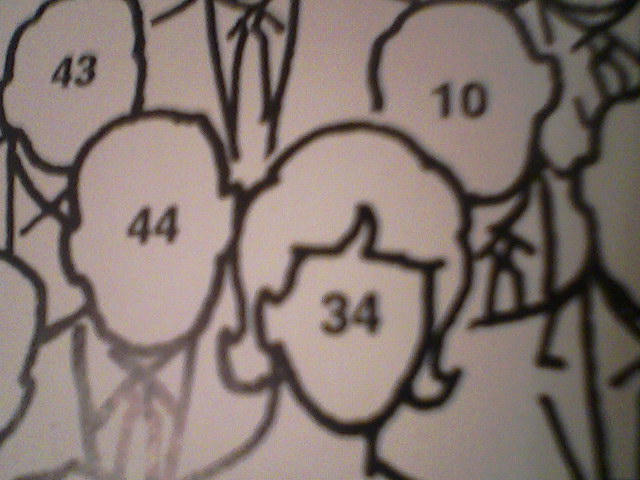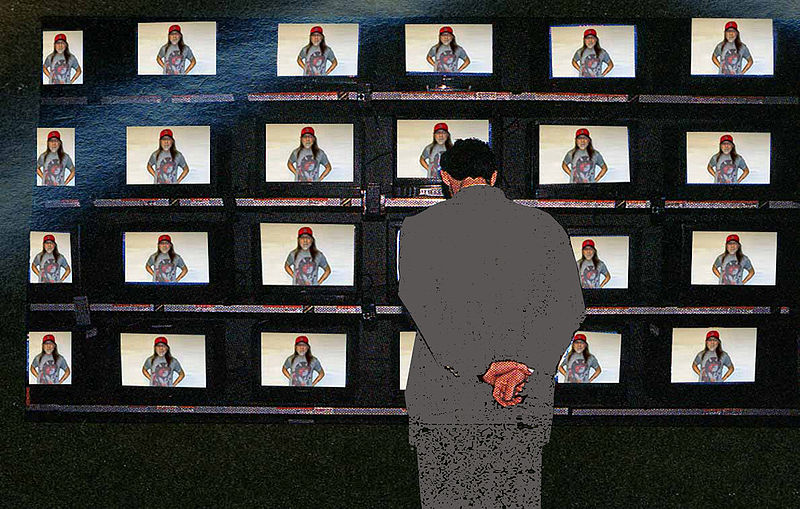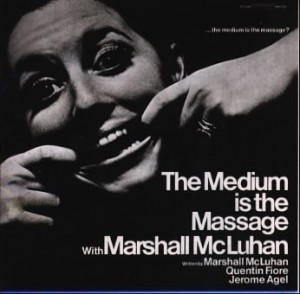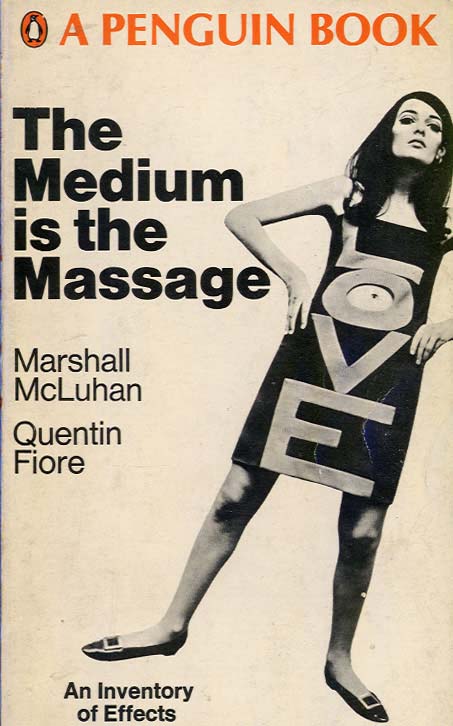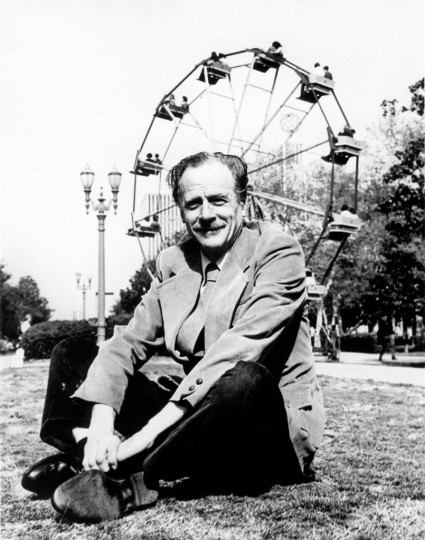While I’m posting clips of McLuhan, here’s the Canadian seer discussing books “taking on a totally different meaning” in the age of microfilm. From the 1960s.
You are currently browsing articles tagged Marshall McLuhan.
Tags: Marshall McLuhan
Marshall McLuhan fearing the Global Village, 1977. On the hopeful side: He wasn’t always right.
Tags: Marshall McLuhan
In 1970, Dick Cavett and Marshall McLuhan discussed the importance of TV image to politicians, using the Nixon-Kennedy debates as a starting point. Television image means little now, since media culture is 24/7, ubiquitous and HD, and everyone comes off poorly. FYI: The other guests on this Cavett episode were Truman Capote and football player Gale Sayers.
Tags: Dick Cavett, Marshall McLuhan
Marshall McLuhan was born on July 21, 1911, and to celebrate his century mark I present the following excerpt from Jane Howard’s 1966 Life magazine article, “Oracle of the Electric Age“:
No people in the history of humanity, McLuhan insists, ever faced demands as grueling as those that confront us. We are witnessing simultaneously the end of what he calls the Mechanical, or Gutenberg, Era, dominated by movable type and later mechanical forms, and the birth pangs of the new and entirely different Electric Age, which he sometimes calls the Age of Circuitry, or of Information. As his books The Gutenberg Galaxy and Understanding Media explain, the change is the most traumatic since the transition 9,000 years ago, from the paleolithic culture to the neolithic, from hunting to agriculture.
The change, says McLuhan, is making movable type obsolete and with it books, newspapers, magazines–in fact all kinds of printed matter, including the sentence you are now reading. We will also have to junk the by-products of the Gutenberg invention which, says, McLuhan, have created our culture’s visual, literary, detached, linear approach to life. This dooms a lot more linear by-products than you might think, including railways, clotheslines, stocking seams, the grid system in city planning and stag lines at dances. Even points of view must go–“because it’s no longer possible to take a fixed position for more than a single moment.” So must jobs, which are fragmentary in nature and do not suit the new age in which people crave roles with depth involvement.•
Tags: Jane Howard, Marshall McLuhan
Marshall McLuhan, a devout Catholic, on a 1970s religious program.
More McLuhan posts:
In February, Paris Review Daily featured a James Atlas interview with Douglas Coupland about the latter’s recent biography of Marshall McLuhan:
“Did you see him as a prophet of the revolution in global communications?
Douglas Coupland: No. Like most people, I only knew his three clichés: Medium equals message, global village, and the scene from Annie Hall . I’ve found that most people truly would like to know more about the man, but it’s almost impossible to do. His language is a universe unto itself and is astonishingly dense and hard to navigate. He died the year I started art school [1980], and his stock was at an all time low. His name never came up.
Why did you believe he was still relevant?
Douglas Coupland: Well, I didn’t. I had to figure that out myself. It took months of reading and rereading his stuff to realize that in Marshall we had a classically trained scholar realizing that there’s this thing coming down the pipe—the Internet—yet because he didn’t understand the ultimate interface, he was frustrated in his inability to describe it clearly. I think that’s what people really respond to in Marshall: the almost vibrating sense of being in on one of the biggest prognostications of all time, yet having news of its arrival coming from this fuddy-duddy guy in 1950s Toronto. How on earth did that happen?”
More McLuhan posts:
••••••••••
“Hello Doug. Would you personally miss bees if they disappeared?”
Marshall McLuhan entertains Tom Wolfe in the backyard of his Toronto home in 1970. (Thanks Documentarian.)
••••••••••
From Wolfe’s 1965 essay about McLuhan in the New York Herald Tribune, “What If He Is Right?“: “There are currently hundreds of studs of the business world, breakfast food package designers, television net work creative department vice-presidents, advertising ‘media reps,’ lighting fixture fortune heirs, smiley patent lawyers, industrial spies, we- need vision board chairmen, all sorts of business studs who are all wondering if this man, Marshall McLuhan … is right…. He sits in a little office off on the edge of the University of Toronto that looks like the receiving bin of a second-hand book store, grading papers, grading papers, for days on end, wearing-well, he doesn’t seem to care what he wears. If he feels like it, he just puts on the old striped tie with the plastic neck band. You just snap the plastic band around your neck and there the tie is, hanging down and ready to go, Pree-Tide.
But what if-all sorts of huge world-mover & shaker corporations are trying to put McLuhan in a box or some thing. Valuable! Ours! Suppose he is what he sounds like, the most important thinker since Newton, Darwin, Freud, Einstein, and Pavlov, studs of the intelligentsia game suppose he is the oracle of the modern times – what if he is right? he’ll be in there. It almost seems that way. An ‘undisclosed corporation’ has put a huge ‘undisclosed sum’ into, McLuhan’s Centre for Culture and Technology at the University of Toronto. One of the big American corporations has offered him $5000 to present a closed- circuit-ours!-television lecture on-oracle!-the ways the products in its industry will be used in the future. Even before all this, IBM, General Electric, Bell Telephone were flying McLuhan in from Toronto to New York, Pittsburgh, God knows where else, to talk to their hierarchs about . . . well, about whatever this unseen world of electronic environments that only he sees fully is all about.”
Tags: Marshall McLuhan, Tom Wolfe
From Gary Wolf’s 1993 Wired article about Marshall McLuhan, “The Wisdom of Saint Marshall, the Holy Fool”:
McLuhan did not want to live in the global village. The prospect frightened him. Print culture had produced rational man, in whom vision was the dominant sense. Print man lived in a world that was secular rather than sacred, specialized rather than holistic.
But when information travels at electronic speeds, the linear clarity of the print age is replaced by a feeling of “all-at-onceness.” Everything everywhere happens simultaneously. There is no clear order or sequence. This sudden collapse of space into a single unified field ‘dethrones the visual sense.’ This is what the global village means: we are all within reach of a single voice or the sound of tribal drums. For McLuhan, this future held a profound risk of mass terror and sudden panic.
The current idea of a global village as a place of universal harmony and industrious basket-weaving is a tourist’s fantasy. McLuhan gave in to the intoxication of this hope for a few years in the early ’60s, and it is evident throughout Understanding Media: The Extensions of Man, his most optimistic work. In that book, McLuhan sings of the furthest reaches of electronic culture, when computer technology has replaced language with instant nonverbal communication. He compares this mystical unification of humanity to the Christian Pentecost. But McLuhan soon realized that before the Pentecost comes suffering and crucifixion, and while we are all waiting for the Holy Ghost to descend, Jerusalem is likely to be scary as hell.•
Tags: Gary Wolf, Marshall McLuhan
Boing Boing pointed me to a remarkable site called “Marshall McLuhan Speaks: Centennial 2011,” which celebrates what would have been the media philosopher’s 100th birthday. It contains clips of McLuhan opining about things he saw on the horizon that others didn’t. It’s amazing to think how celebrated and discredited McLuhan was in such short order during the ’60s and ’70s, but I think his ideas are mostly a good legacy. A transcript of McLuhan’s words from 1966, describing what sounds very much like the Internet:
“Instead of going out and buying a packaged book of which there have been 5,000 copies printed, you will go to the telephone, describe your interests, your needs, your problems, and they at once xerox, with the help of computers from the libraries of the world, all the latest material just for you personally, not as something to be put out on a bookshelf. They send you the package as a direct personal service. This is where we’re heading under electronic information conditions.”
More Afflictor posts about Marshall McLuhan:
- McLuhan on Facebook (1967)
- McLuhan on genocide in America (1969)
Tags: Marshall McLuhan
Facebook wunderkind Mark Zuckerberg being named Time magazine’s Person of the Year made me recall an ominous passage from early in The Medium Is The Massage: An Inventory of Effects, from 1967. Not that I think that things are quite this dire, but Marshall McLuhan was pretty prophetic here. An excerpt:
“How much do you make? Have you ever contemplated suicide? Are you now or have you ever been…? I have here before me…Electrical information devices for universal, tyrannical womb-to-tomb surveillance are causing a very serious dilemma between our claim to privacy and the community’s need to know. The older, traditional ideas of private, isolated thoughts and actions–the patterns of mechanistic technologies–are very seriously threatened by new methods of instantaneous electric information retrieval by the electrically computerized dossier bank–that one big gossip column that is unforgiving, unforgetful and from which there is no redemption, no erasure of early ‘mistakes.’ We have already reached a point where remedial control, born out of knowledge of media and their total effects on all of us, must be exerted. How shall the new environment be programmed now that we have become so involved with each other, now that all of us have become the unwitting work force for social change? What’s that buzzzzzzzzzzzzzzzzzzzzzzzzzzzzzzzzing?”
Marshall McLuhan was usually a genuinely incisive thinker and not the mountebank that some make him out to be. His writings still have a lot to teach us about the great paradigm shift we’re currently experiencing. But he was prone to sometimes wildly misread the future like anyone who constantly traffics in tea leaves. One glaring example was his prediction at the end of the 1960s that there might soon be genocide in America. In a 1969 Playboy interview, he opined that the shift from mechanical to technological culture might cause just that to occur. An excerpt:
Playboy:
What, specifically, do you think will happen to [the black man]?
Marshall McLuhan:
At best, he will have to make a painful adjustment to two conflicting cultures and technologies, the visual-mechanical and the electric world; at worst, he will be exterminated.
Playboy:Exterminated?
Marshall McLuhan:
I seriously fear the possibility, though God knows I hope I’m proved wrong. As I’ve tried to point out, the one inexorable consequence of any identity quest generated by environmental upheaval is tremendous violence. This violence has traditionally been directed at the tribal man who challenged visual-mechanical culture, as with the genocide against the Indian and the institutionalized dehumanization of the Negro. Today, the process is reversed and the violence is being meted out, during this transitional period, to those who are nonassimilable into the new tribe. Not because of his skin color but because he is in a limbo between mechanical and electric cultures, the Negro is a threat, a rival tribe that cannot be digested by the new order. The fate of such tribes is often extermination.•
Tags: Marshall McLuhan

